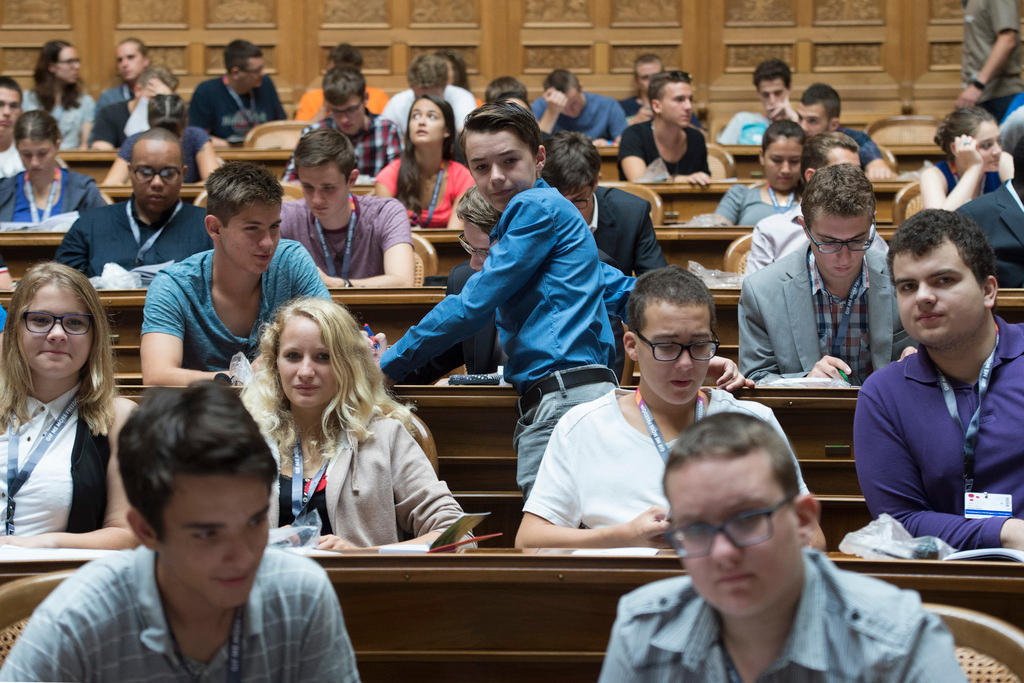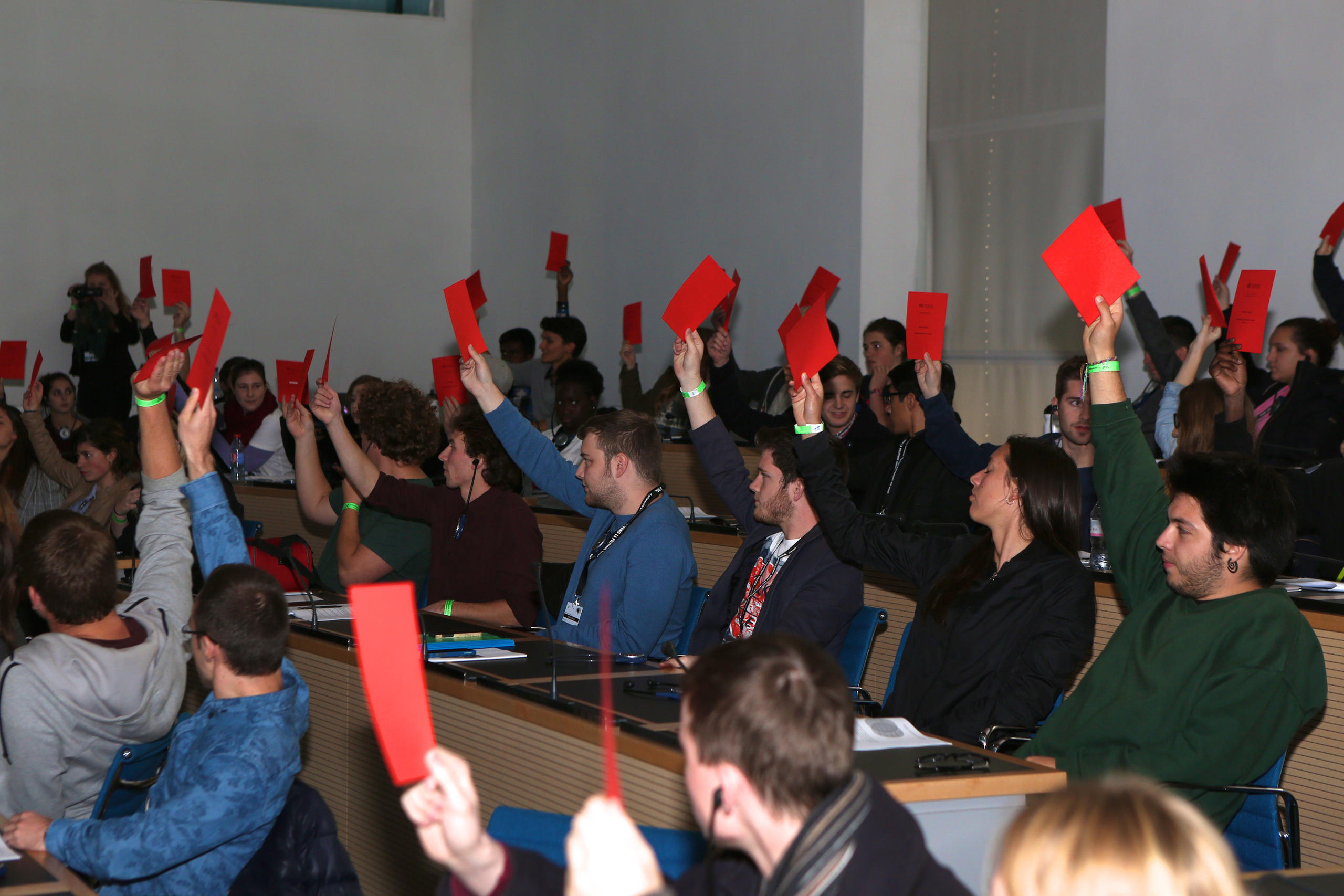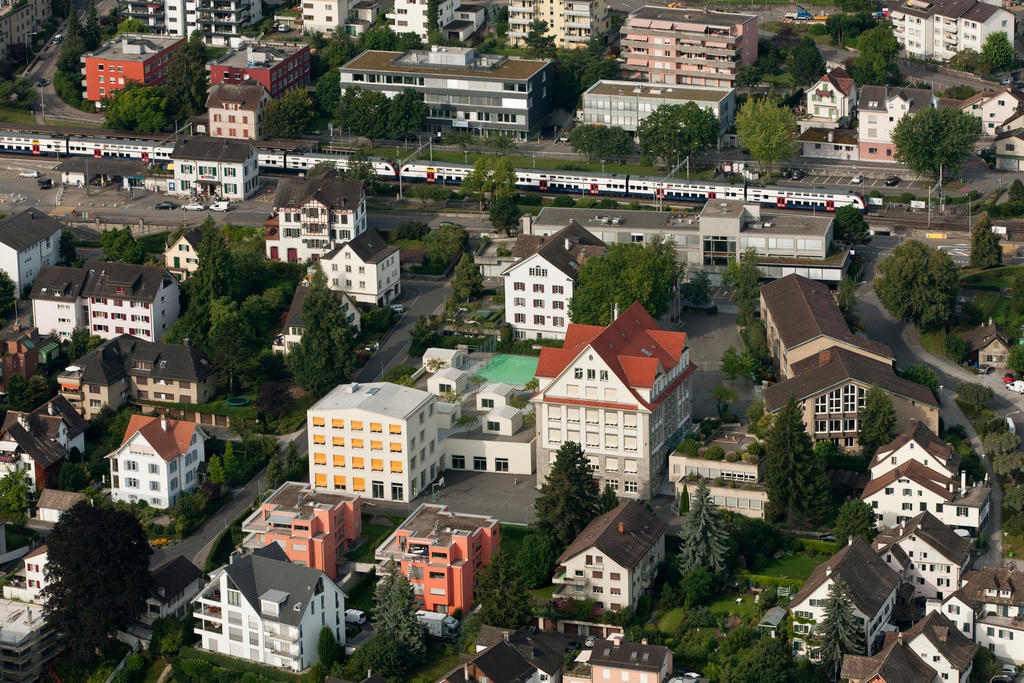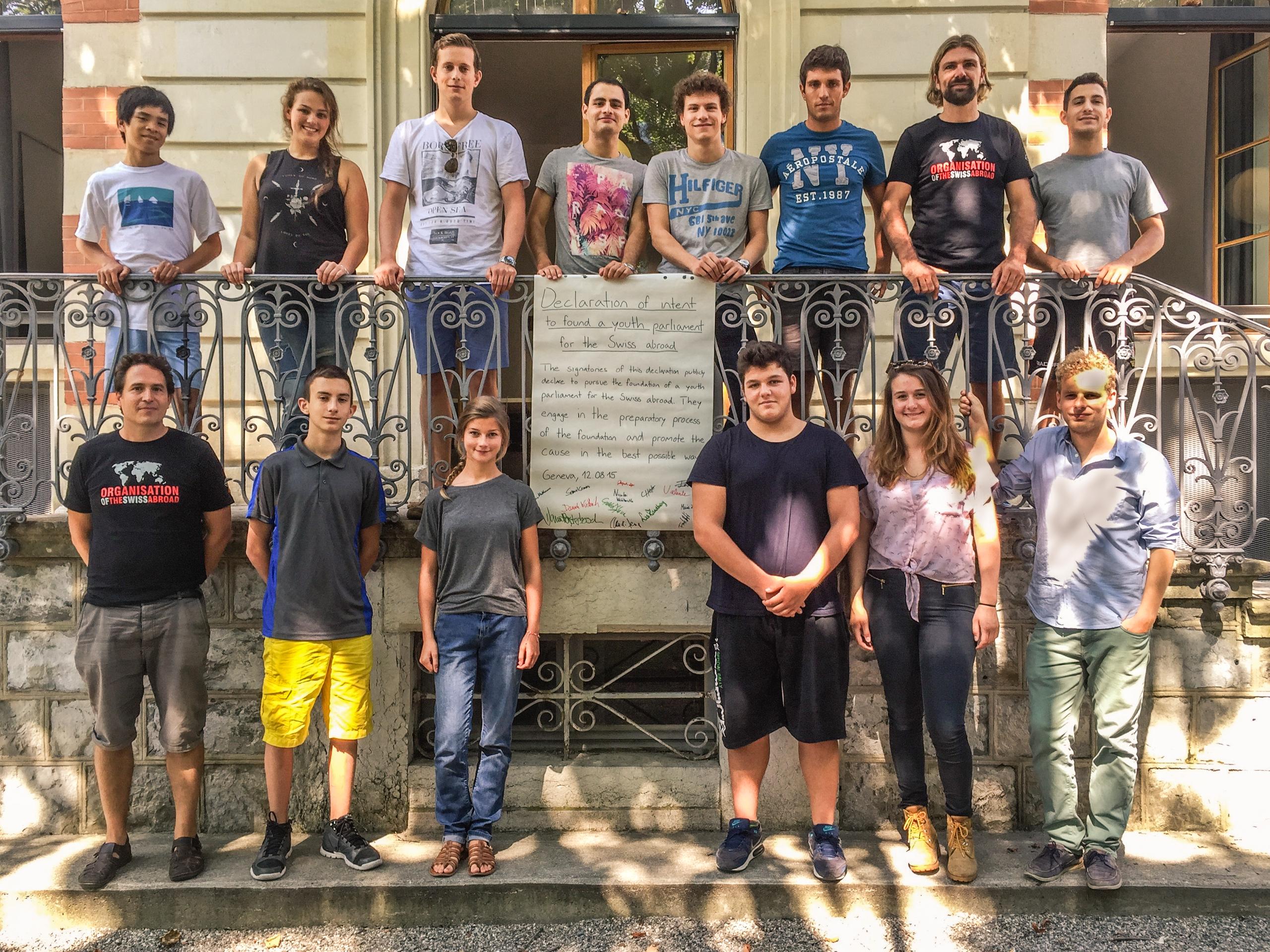How young Swiss want their country to improve

The youth parliaments have created a website, Change Switzerland, to collect proposals from 14 to 25-year-olds across the board. Eleven representatives are now going to select the best from the hundreds of ideas submitted in order to champion them in the political arena.
Minimum wage for everyone, legalising cannabis, abolishing the arms industry, inclusive and green economy and increasing the permitted speed for mopeds to 40kph (25mph) – these are just a few of the almost 700 proposals collected in five weeks (from 20 February to 25 March) on the engage.chExternal link website in German, French and Italian.
An impressive haul, both in terms of the quantity and quality of the texts, some of which were drafted like real parliamentary motions with an explanatory memorandum and proposal for action.
But Ladina Caprez, communications officer for the Swiss Federation of Youth ParliamentsExternal link, is not taken aback by the turnout.
“What surprised us a little was that all the proposals were good,” she says. “But otherwise, for those of us who work with young people every day, this is well in line with our expectations. There are a lot of very motivated young people but no platforms for them to express themselves.”
The federation has fittingly decided to offer these platforms with the first edition of the Change Switzerland process.
This text is part of #DearDemocracy, a platform on direct democracy issues, by swissinfo.ch.
Originally, there was a pilot scheme at a local level in 2015 and, of course, there are 69 youth parliaments in Switzerland and the principality of Liechtenstein that are also submitting their proposals.
Incidentally, the site identifies 55 success storiesExternal link, ideas which were submitted by young people and made their way through parliament before actually being implemented.
Practicality
How many of the 700 new proposals will progress to the same level? For now, young people have the option to express their preference with a “like”.
Out of all the categories, the most popular is withdrawing Switzerland from the NATO Partnership for Peace programme, on the grounds that the organisation is allegedly too aggressive and leads “illegal wars”.
It is followed by proposals to expand the legal definition of rape (to better protect all victims of abuse), and to offer half-price public transport for schoolchildren, apprentices and students (in a country where travelling by train or bus is particularly expensive).
“But the likes are not the deciding factor,” says Caprez.
In the end, it will be the 11 youngest parliamentariansExternal link in the Swiss parliament (aged between 28 and 35) who have agreed to participate in the process, who will each choose an idea to put forward to their colleagues and try to get it passed.
“Of course, they are going to choose a proposal which has a chance of being passed rather than an unrealistic idea,” the spokeswoman adds.
More direct democracy
The list of the 11 ideas chosen will be announced on 12 June.
Meanwhile, a look at the 700 proposals shows that they can be split into 15 categories (ranging from health to international relations and from leisure to the media) and that the politics category included 60 proposals – of those, 24 are directly linked to the topic of direct democracy and the tools to exercise it.
Based on the number of likes (which will not be the deciding factor in the end as we have seen), the three most popular proposals also seem to be among the most unrealistic.
Preferences
They are:
• Introducing the right to vote for foreigners,
• Replacing the elected parliament with a people’s parliament selected at random
• Abolishing the double majority rule for votes on amending the constitution, which gives an undue weight to the residents of smaller cantons.
These are followed by various proposals:
• to improve information for citizens on issues which are to be voted on,
• Stricter regulations regarding financing and the transparency of political campaigns,
• Electronic voting,
• A legislative initiative,
• or the creation of a constitutional court which decides the appropriateness of people’s initiatives and how they are applied.
Typical demands
Nothing new then, because the majority of these requests are already supported by one or another of the parties represented in parliament.
The more typical demands of the young people are: lowering the voting age to 16 (requested five times by different people) or systems for weighting the votes which give a greater weighting to young people’s votes.
Finally and somewhat less conventional, the idea of offering several options in a vote, where the citizens should not settle for answering with just a yes or no, and this peculiar proposal of weighting citizen’s votes according to their level of education.
As if the opinion of a blue-collar worker is worth less than that of an engineer. An idea which is clearly not popular.
Translated and adapted from French/ug

In compliance with the JTI standards
More: SWI swissinfo.ch certified by the Journalism Trust Initiative
















You can find an overview of ongoing debates with our journalists here . Please join us!
If you want to start a conversation about a topic raised in this article or want to report factual errors, email us at english@swissinfo.ch.